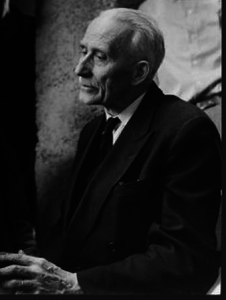Evangelist Franklin Graham, son of the legendary Billy Graham, has characterized Islam as “a very evil and wicked religion. . .a religion of hatred, a religion of war.” In recent years, other prominent Protestant evangelists have made similar statements. It happens that quite a few popes have as well.
In the 14th century, Clement V bemoaned that in Christian lands one hears “the public invocation of the sacrilegious name of Mahomet”; in the 15th century, Callixtus III denounced Islam as a “diabolical sect.” Pius II warned against Muhammad as a “false prophet,” and Pope Eugene condemned “the abominable sect of Mahomet”; in the 16th century Pope Leo X portrayed the Muslims as replacing the light of salvation with “totally unyielding blindness”; and in the 18th century, Pope Benedict XIV castigated Christians who indirectly promote “the errors of Mohammed” when they take Muslim names in order to avoid taxation and other penalties by Muslim authorities.
And there was harsh criticism of Islam in past centuries by saints such as Thomas Aquinas, or John of Damascus, who called Islam “diabolical.”
“Evil”? “Diabolical”? Overly harsh allegations? Many of us know good individual Muslims. But can the religion they belong to be evil? Can we make a fair distinction between the goodness of the individual members and their religion?
Pope Benedict XVI touched on alleged “evil” in Islam very lightly in his famous 2006 lecture at Regensburg on the necessity of uniting reason and religion. He cited the example of a 14th century emperor’s view of Islam as irrationally violent and thus evil. This touched off a world-wide uproar and mayhem, concerning which then-Argentinean Cardinal Jorge Mario Bergoglio, the future Pope Francis, commented: “These statements will serve to destroy in twenty seconds the careful construction of a relationship with Islam that Pope John Paul II built over the last twenty years.” He added that such statements “don’t reflect my own opinions.”
But what does he make of past and current reports of Islamic atrocities? The 2015 World Watch List found 4,344 Christians killed for faith-related reasons and 1,062 churches attacked. The 2016 list documents 7,106 killed and 2,425 churches attacked. There are literally thousands of cases of violence against Christians and destruction of churches in Egypt, Pakistan, Syria, Iraq, Iran, Indonesia, Africa, and elsewhere in the Muslim world.

Pope Francis is presumably well-informed about such events, but he comments in his Apostolic Address, The Joy of the Gospel, “Faced with disconcerting episodes of violent fundamentalism, our respect for true followers of Islam should lead us to avoid hateful generalizations, for authentic Islam and the proper reading of the Koran are opposed to every form of violence.”
In taking this position, Francis, a faithful “son of the Church,” is echoing Vatican II. At the Council, Pope John XXIII, as part of his goal of “opening the windows of the Church,” wished the participants to reconsider the relationship of the Church to Judaism, avoiding theological and liturgical positions which had a history of contributing to anti-Semitism. There was no agenda at the outset for pronouncements about the relationship to Islam; but, as I mentioned in a previous column, some Fathers and theologians at the council, were anxious to include Islam in official documents related to “non-Christian religions.”
A significant factor behind this movement was the work of Louis Massignon (1883-1962), a Catholic scholar of Islam and a pioneer of Catholic-Muslim mutual understanding. Massignon taught that we need a “Copernican revolution” in our approach to understanding Islam. We have to place ourselves in the center of the Islamic mindset, understanding Islamic spirituality, and conduct dialogues from that vantage point.
During the Council, one of Massignon’s disciples, the Egyptian Dominican theologian, Georges Anawati (1905-1994), actively “lobbied,” in conjunction with other council members, for positive statements about Islam in official documents. This group succeeded: Nostra aetate and Lumen gentium contain laudatory statements about Islam: “The plan of salvation also includes those who acknowledge the Creator, in the first place amongst whom are the Moslems,” an Abrahamic monotheistic religion, submitting “without reserve to the hidden decrees of God,” and sharing much with Christianity in basic beliefs and moral teachings.
But in view of the hateful attitude toward other religions shown throughout Islamic scriptures, as well as the massive numbers of murders and church-burnings and persecutions we’ve seen for decades now, was such praise simply wishful thinking? Condemnations of obvious features of Islam are almost non-existent in today’s Church.
Pope Pius XI published Mit brennender Sorge, an open critique of the German Reich and Divini redemptoris against Communism. Pope Pius XII chose to work persistently, but undercover, during his papacy, to defeat Nazism and save Jews. What if he, too, had published a bold condemnation of Nazism?
During Vatican II, the Soviet Union was a global scourge, and Our Lady of Fatima in extraordinary appearances at the outset of the Communist revolution had even warned the Church about Russia “spreading her errors throughout the world.” But incredibly there was not a whiff of criticism of Communism from the Council. What would have happened if Paul VI had strongly condemned the USSR, Leninism, and Marxism? Is diplomatic caution essential in papal pronouncements? Or should we follow the Holy Roman Emperor Ferdinand I’s motto, Fiat justitia, pereat mundus, “let justice be done, even if the world perishes”?
And with regard to Islam now, an outright papal condemnation of the religion, such as uttered by popes from past centuries, we can be sure, would result in massive disturbances throughout the world – perhaps World War III. And such a condemnation might unfairly tar the moderate Muslims along with the extremists. But short of condemnation, continuous eulogizing is out of place. And as to “the religion of peace,” it’s time to take into account the traditional Muslim interpretation of “peace.” The world is divided into two “houses” – the House of Peace (Dar Al-Salaam) and the House of War (Dar Al-Harb). Only Muslims are within that first “house.”















